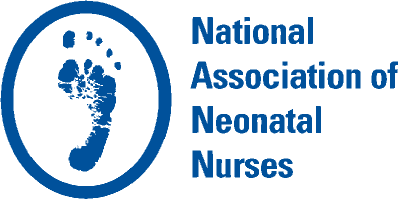NANNP Corner
New Year’s Resolutions: Keep it Simple
Let me start with “Welcome to 2020.” There were some big wins in 2019 at the Federal Level. House Resolution (HR) 776, the Emergency Medical Services for Children Program reauthorization act, was passed. This bill focuses on improving emergency care for children who are seriously ill or injured. HR 866, Fairness in Breastfeeding Mothers Act, was passed. This bill requires that certain public facilities provide lactation rooms for breastfeeding mothers. A major win was Public Law 116-92, which will allow 12-week paid parental leave for federal civilian employees. Some states are looking at similar legislation. HR 728, the Title VIII Nursing Workforce Reauthorization Act of 2019, passed in the House. A similar Senate Bill (SB) 1399 was introduced and placed on the calendar in the Senate. Title VIII provides important funding for nursing education and professional growth. One goal of this bill is to recruit, educate, and retain nurses and advanced practice registered nurses.
Back to “Welcome to 2020.” Every year people make New Year’s resolutions, yet approximately 80% of people do not meet their goal (Luciani, 2015). The good news is that if you have ever made a New Year’s resolutions and fell off the wagon, you are not in the minority. The bad news is that creating New Year’s resolutions can often create anxiety, additional stress, and lower one’s self-esteem according to Amy Cuddy, a social psychologist at the Harvard Business School (Feloni, 2015). Cuddy still recommends that people set goals in life; however, those goals should be small so that one can build on them. They also need to be attainable and have a positive rather than negative focus (Feloni, 2015).
Individuals who work in health care often suffer from burnout, emotional exhaustion, and lack of personal accomplishment (Reith, 2018). Therefore, setting New Year’s resolutions that could potentially create more stress or lead to feelings of failure might not be in one’s best interest. However, one can do small, easy acts and then build upon them. Some examples are:
- Instead of “This year I will mentor a new graduate NNP,” perhaps start with “I will take a new graduate NNP out for coffee.”
- Instead of “This year I will become a health policy advocate,” instead try “I will send at least one email or make one call to contact my legislator about a policy that is important to me.”
- Instead of “This year I am going to improve the morale among my peers,” consider “this year I am going to thank my peers more often for their help.”
- Instead of “This year I am going to be a better person,” think about changing that to “I am going to practice using compassion with myself and with others.”
It is important to focus on the process and give oneself credit for one’s accomplishments. Few people can run a marathon without running many miles before that (Novak, 2016). To be successful at running a marathon, one must embrace the process and feel accomplished in every mile that is run in preparation. Each of us has the capacity to do remarkable things, have a significant impact, and influence change within others and ourselves. Yet, change happens in small steps. This year, if you made resolutions, be kind to yourself and others. Try to make positive changes in small steps so you can revel in your accomplishments rather than perseverate on your failures at the end of the year. I am grateful for all that each of you do. Life is good.
References
Feloni, R. (2015, December 28). A Harvard psychologist explains why your New Year's resolution may do more harm than good” Business Insider. Retrieved from https://www.businessinsider.com/amy-cuddy-explains-the-dangers-of-new-years-resolutions-2015-12.
Luciani, J. (2015, December 29). Why 80 percent of new year's resolutions fail. U.S. News & World Report. Retrieved from https://health.usnews.com/health-news/blogs/eat-run/articles/2015-12-29/why-80-percent-of-new-years-resolutions-fail.
Novak, J. (2016, January 29). Zelle book club: "Presence". Runner's World. Retrieved from https://www.runnersworld.com/women/a20860390/zelle-book-club-presence/.
Reith, T. (2018, December 4). Burnout in United States healthcare professionals: A narrative review. Cureus. Retrieved from https://www.cureus.com/articles/16398-burnout-in-united-states-healthcare-professionals-a-narrative-review.
Our Sponsor


